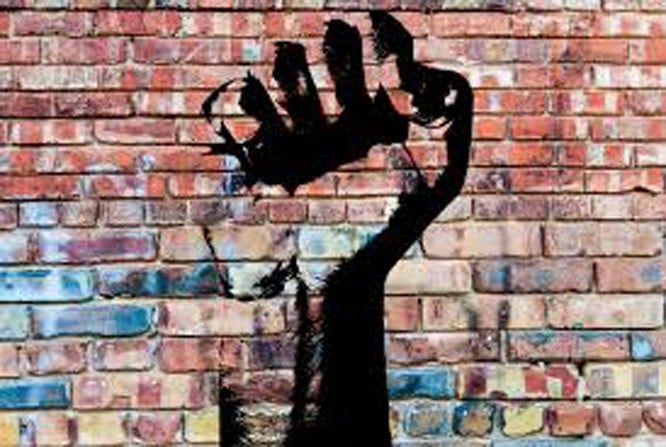
Does having a political opinion impact a teacher’s ability to examine arguments critically?

Recent social media outrage has sparked a debate about the role of academics - should they have political opinions? Should they participate in activism? Does this make them biased?
It should be worrying for any citizen of this country who holds a political opinion - and who doesn’t? - that a tweet can jeopardise professional lives. But what I find even more worrying in this debate is the distorted representation of academic work and the ways it engages local and national communities both in and out of the classroom. In other words, accusations of bias completely misunderstand the role of education in our society.
The problem with prohibiting political opinions in academia is that it reduces academics to passive receivers and transmitters of knowledge - like nodes in a closed circuit that faithfully transfer energy. However, the simple transfer of correct information and facts is only the first requirement of education. Information and facts may be correct, but they are never neutral - they are established as a result of historical, political, and cultural factors that allow them to exist and spread. A complete education also teaches us how to assess information and facts, how to put them together in coherent ways, how to understand their significance - how to ‘connect the dots’ between raw knowledge and the historical, political and social factors that are the conditions of its possibility.
The ability to understand the relation between knowledge and various forms of power allows academics to participate in their local, national, and transnational communities in politically meaningful ways. For example, the anti-colonial movement in the twentieth century is filled with examples of academics standing against oppressive power structures: Kwame Nkrumah, Aime Cesaire, Leopold Senghor, Angela Davis, C.L.R. James etc. Similarly, in South Asia, the education policy of the British Raj became a central site of contestation between the coloniser and colonised, and both students and teachers played a key role in the anti-colonial struggle. Some of the most important politicians and intellectuals of the time including Sir Syed Ahmed Khan, Shibli Nomani, Rabindranath Tagore, Annie Besant, and M.K. Gandhi all made invaluable contributions in this regard.
These historical examples show us that reading, writing, researching, teaching, learning - in short, the many functions an academic performs - must be rooted in their communities. Without active engagement beyond the classroom, academia is merely an ivory tower - secluded, hierarchical, and endlessly reinscribing the ideologies of power. If anything, academics and universities, especially private universities, need to take a much more active role in society. They have a responsibility to the communities they exist within and profit from.
The debate about the role of academics is important, but the more important question right now is why these allegations of bias and indoctrination are appearing at this precise moment. I believe they can only be understood as distractions from a larger context: the crisis of education both nationally and internationally.
First, the national context. The current government has decided to cut funding for the Higher Education Commission (HEC) by 40 percent in the 2019-20 budget. Despite their claims of prioritising education, they have dealt an insurmountable blow to the proper development of higher education in this country. The proposed budget cuts - coming after the IMF deal, which will force the country to cut down on education, health, and basic necessities while lining the pockets of international finance - will make it harder for academics of all political stripes to perform their work. It will take away much-needed scholarships, grants, and other resources that are essential to educating students, especially the most marginalised ones.
The financial squeeze goes hand in hand with the repressive culture currently being bred in academic spaces. Teachers have been intimidated, arrested, and even murdered for their socio-political commentary and activity in the past year.
It is also important to remember that the current crisis of education is not limited to Pakistan. Oppressive leaders from Bolsonaro to Modi have targeted academics and universities. Jair Bolsonare, the President of Brazil, has been pushing for a program called Escola Sem Partido (Schools Without Political Parties). This program proposes a ban on all political opinions in the classroom because of the perceived risk of bias and indoctrination. However, particular censorship of academic discussions around issues of inequality, race, and gender show that he considers certain political opinions more ‘political’ than others. Bolsonaro accuses his opponents of bias while presenting his own extreme opinions as neutral. Sound familiar?
In India, the BJP and RSS, especially their student wing, ABVP, have attacked students and teachers for their political opinions. For example, students from Jawaharlal Nehru University were arrested and charged with sedition in 2016 for participating in a political protest. The BJP government was heavily criticised but the charges remain unproven. The repressive Sudanese government, currently run by military generals, has also periodically resorted to shutting universities, arresting nonviolent student protestors, and even beating up professors and vandalising university buildings.
It’s not a coincidence that oppressive governments are clamping down on political participation in academia. They want to restrict the role of academics to passive receivers and transmitters of knowledge because they are dismissive of critical questions and investigations about their own agendas. A growing political consciousness amongst students, particularly women, ethnic minorities, and working-class students endangers the misogynist, racist, and capitalist status quo. The suicide of Rohith Vemula, a PhD candidate at the University of Hyderabad, sparked Dalit protests on campuses across India. The Sudanese Professionals Association, an umbrella organisation of trade unions which is currently leading the popular revolt against the Sudanese government, contains many members who are students and teachers. If history has shown us that universities are the first places attacked by oppressive leaders, it’s also shown us they are the first places to resist.